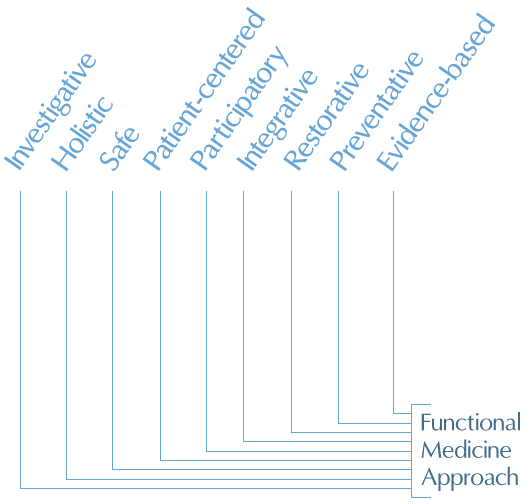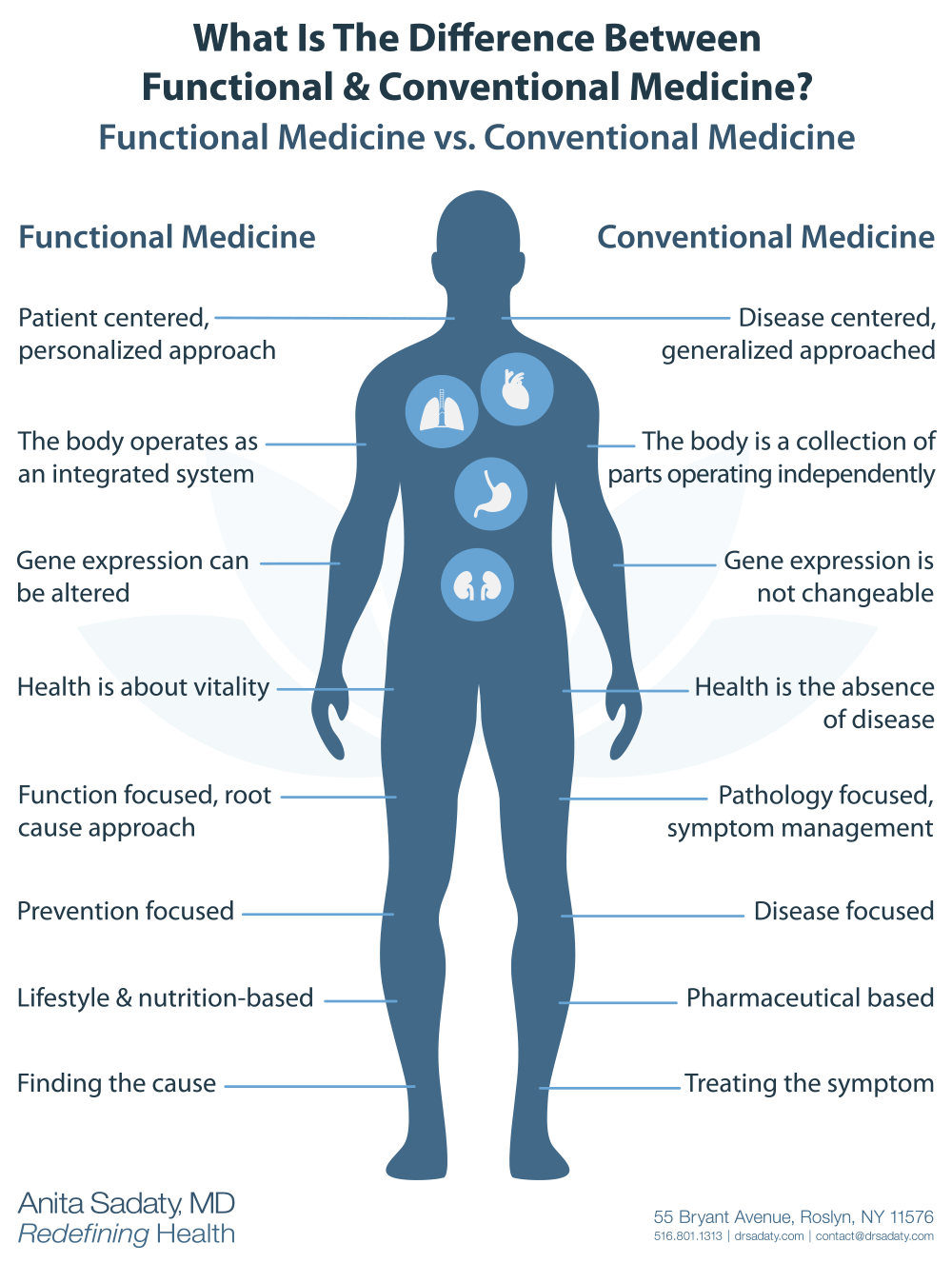Dr. Anita Sadaty
Functional Medical Philosophy

Though formally trained as a medical doctor specializing in Obstetrics and Gynecology, I have deepened and expanded my training to incorporate complementary healing practices. The beauty of integrative medicine is its ability to take Western, conventional medicine training, with its modern understanding of the human body and modern therapeutic techniques, and integrate it with ancient healing traditions and naturopathic practices. It is not simply using ancient healing philosophies to “complement” medical practice or to use them as an “alternative” to conventional medicine.



According to the California Center for Functional Medicine, there are nine key characteristics that help describe a functional Medical approach:
» Investigative — Addresses symptoms by focusing on the underlying cause of the problem, which leads to more profound and longer lasting results.
» Holistic — Envisions the body as an interconnected whole that is in dynamic relationship to its environment, and recognizes the importance of these connections in health and disease.
» Safe — Treatments have mild or no side effects, and other unrelated complaints often improve spontaneously.
» Patient-centered — Treats the patient, not the disease. Treatments are highly individualized based on patient needs.
» Participatory — Patient is respected, empowered, educated and encouraged to play active role in healing process.
» Integrative — Combines the best of both modern and traditional medicines and emphasizes importance of diet and lifestyle.
» Restorative — Tests and treatments designed to promote optimal function, prevent and reverse disease, and improve quality of life.
» Preventative — Guided by the ancient Chinese saying, “The superb physician treats disease before it occurs.”
» Evidence-based — Based on the latest research from peer-reviewed medical journals, and uncorrupted by corporate and political interests.
Functional Medicine vs. Conventional Medicine
How functional medicine differs from conventional medicine:
» In conventional or allopathic medicine, there is a specialist for every part of your body. Neurologists for the brain, Gastroenterologists for the digestive system, Cardiologists for the heart and so on. This compartmentalization of body systems results in a more disjointed approach to addressing disease, with one doctor focusing on solely one body system and not addressing the patient in a holistic manner.
» When we create these artificial divisions, we lose sight of the body as an interconnected whole and we fail to understand how different imbalances in different systems may actually all be related to a common underlying cause. Treatment then becomes based on the presenting symptom and not the cause of the symptom.
» Functional Medicine provides individualized, personalized medical care that focuses on discovering the underlying factors that cause symptoms and affect your health. As a functional medicine practitioner, we understand that you must treat the body as an integrated whole in order to treat the specific disease or imbalance — we look to understand the root cause of disease and then treat the cause in order to remove the symptoms, not just alleviate them.
